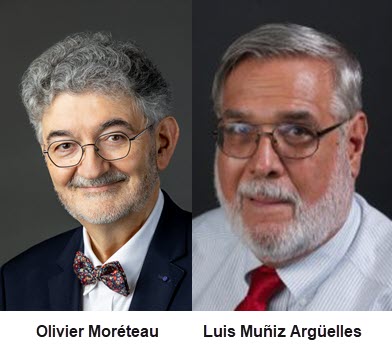Abstract
Excerpted From: Olivier Moréteau and Luis Muñiz Argüelles, Multicultural Populations and Mixed Legal Systems in the United States: Louisiana and Puerto Rico, 70 American Journal of Comparative Law i1 (October, 2022) (131 Footnotes) (Full Document)
 Multiculturalism has been a substantial part of the U.S. experience and a continued source of tension throughout the country's existence. From a legal point of view, however, the Anglo-American common law is everywhere the driving force, seemingly leaving limited room for the legal systems of the native populations, and even less for the forcefully transported African population, though history proves that these populations had at all times legal awareness and agency. While it might seem difficult to describe the U.S. legal system as mixed, its day-to-day, decentralized, bottom-up dynamic interacts with, and draws on, a diversity of endogenous and exogenous cultures. If legal and normative phenomena are considered from the perspective of critical or radical pluralism, there may be more diversity in the United States than one might expect. The present Report, however, focuses on the State of Louisiana and the Commonwealth of Puerto Rico, both of which qualify as mixed jurisdictions according to mainstream definitions.
Multiculturalism has been a substantial part of the U.S. experience and a continued source of tension throughout the country's existence. From a legal point of view, however, the Anglo-American common law is everywhere the driving force, seemingly leaving limited room for the legal systems of the native populations, and even less for the forcefully transported African population, though history proves that these populations had at all times legal awareness and agency. While it might seem difficult to describe the U.S. legal system as mixed, its day-to-day, decentralized, bottom-up dynamic interacts with, and draws on, a diversity of endogenous and exogenous cultures. If legal and normative phenomena are considered from the perspective of critical or radical pluralism, there may be more diversity in the United States than one might expect. The present Report, however, focuses on the State of Louisiana and the Commonwealth of Puerto Rico, both of which qualify as mixed jurisdictions according to mainstream definitions.
Louisiana is a state in the continental United States. It constitutes the southern portion of a large territory purchased from France in 1803, which, after a short territorial period, became in 1812 the eighteenth state of the Union. The State of Louisiana shares much of its history and culture with other southern states, and its 4.5 million people speak the English language. A Spanish colony for over 400 years, Puerto Rico is a Caribbean island acquired by the United States in 1898. It has a Spanish speaking population of 3.2 million people. Today, the Estado Libre Asociado de Puerto Rico (Associated Free State of Puerto Rico, or the Commonwealth of Puerto Rico) is in a decades long debate as to whether it should become a state of the United States, remain an autonomous territory or become an independent nation. What Louisiana and Puerto Rico have in common is that both have their private law anchored in the civil law tradition, each having a civil code. Louisiana codified its civil law after the Purchase of 1803 (Digest of 1808, Civil Code of 1825, and revised Civil Code of 1870) and engaged in a piecemeal civil-code revision starting in the 1970s. Puerto Rico received the Spanish Civil Code of 1889, which it revised in 1902 and again in 1930, replacing it with a new code in 2020. Regarding their multicultural populations and mixed legal systems, these two jurisdictions have many singularities that justifies that they be discussed in different sections.
Olivier Moréteau is Professor of Law, Russell B. Long Eminent Scholars Academic Chair, Director of the Center of Civil Law Studies, Louisiana State University; Director Emeritus of the édouard Lambert Institute of Comparative Law, Université Jean Moulin Lyon 3; President of Juris Diversitas.
Luis Muñiz Argüelles is Professor, University of Puerto Rico Law School.


